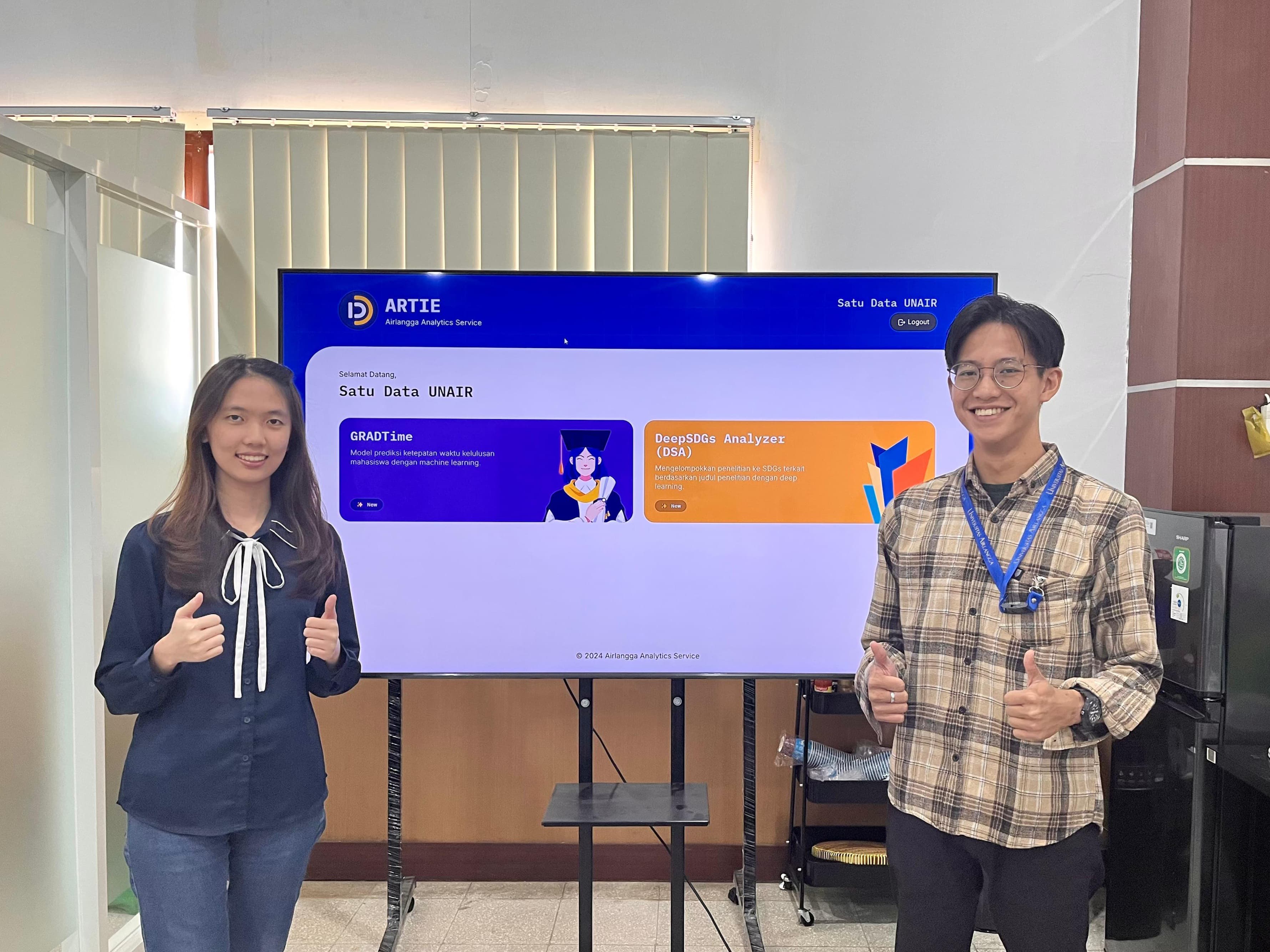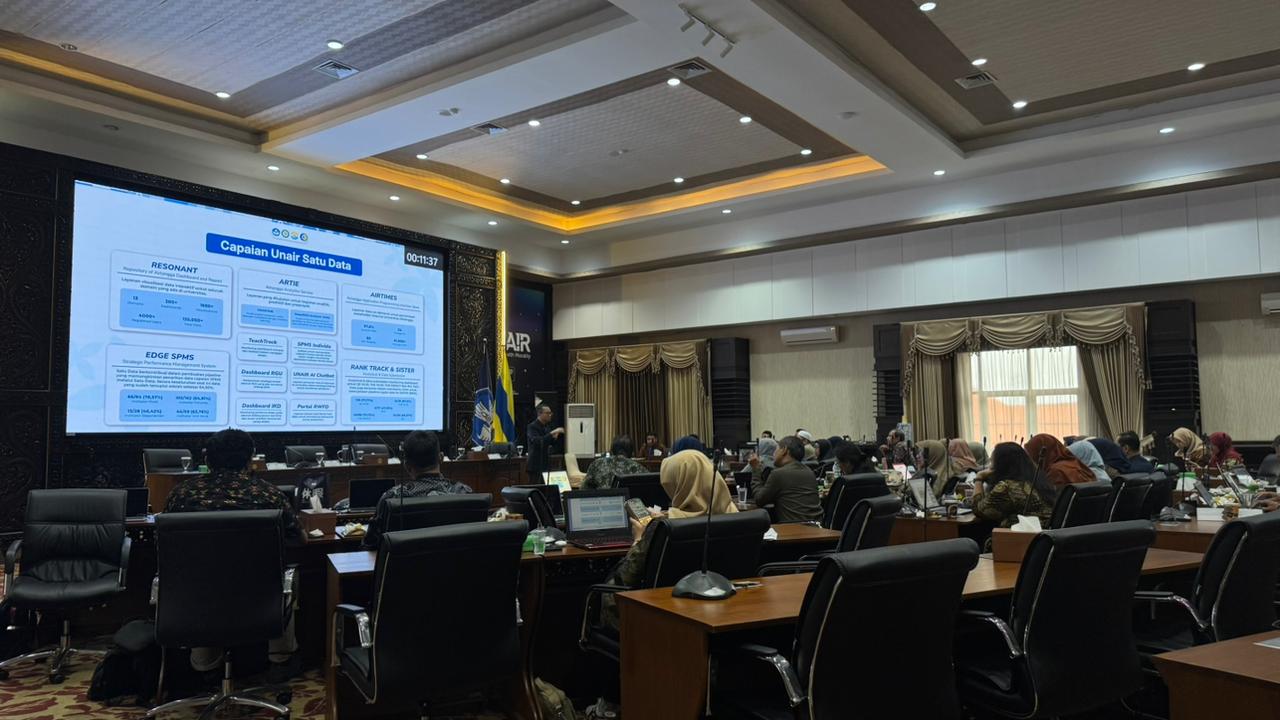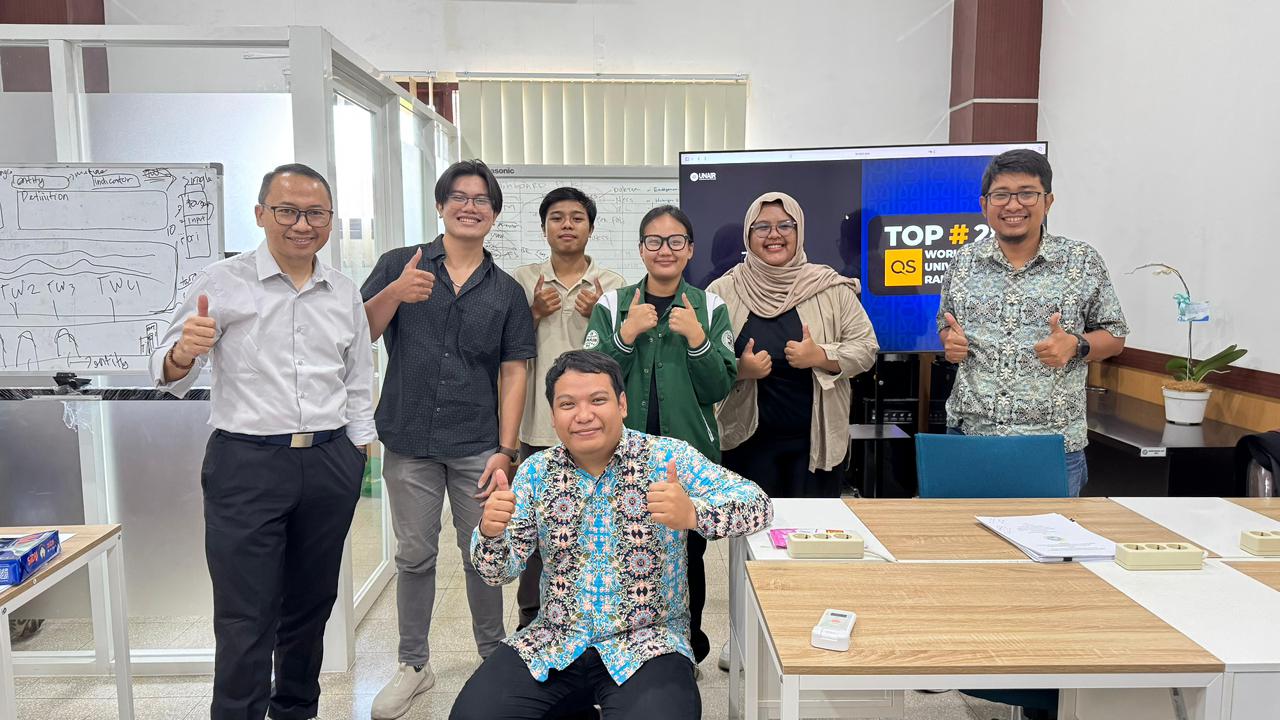In the middle of technological advancements and the growing trend of Artificial Intelligence (AI), Satu Data Universitas Airlangga continues to adapt and innovate. One of the strategic steps is the development of two AI-based services, GRADTime and DeepSDGs Analyzer (DSA). These services were designed based on the intention to utilize data in other forms besides dashboards and similar tools. Christiant Dimas Renggana, S.Kom., as the AI RnD Lead of Satu Data, expressed his hopes for the services, “Although there are still more things to do, I personally hope it serves as a solid first step, allowing us as an institution to continue it towards something greater and creating a positive impact for Universitas Airlangga and its entire community.”
The first service developed is GRADTime, a model that predicts students’ on-time graduation using machine learning technology. The model predicts the likelihood of timely graduation based on students' academic data from their first three semesters. By using this predictions, Study Program Coordinators are expected to take preventive measures to avoid issues related to study time limits. “However, this service still requires further analysis by the Study Program Coordinators, as the predictions do not yet identify specific issues for each student," Dimas added.
The second service, DeepSDGs Analyzer (DSA), aims to help Universitas Airlangga in classifying the Sustainable Development Goals (SDGs) strengths of each faculty to support the decision-making in the field of research and publications. DSA is designed to categorize the research into relevant SDGs points by analyzing research titles, enabling each faculty to focus on developing areas that contribute to the SDGs.
The development of these two services involved collaboration from various parties within Universitas Airlangga. The data collection process for GRADTime relies on student academic data that were provided by Directorate of Education or Direktorat Pendidikan through Cybercampus, while for DSA relies on publication data that were supported by Innovation, Journal Development, Publishing, and Intellectual Property Rights Institute or Lembaga Inovasi, Pengembangan Jurnal, Penerbitan, dan Hak Kekayaan Intelektual (LIPJPHKI). For the development process, Dimas was assisted by a special team that focuses on RnD in the field of AI. This team consists of interns from Faculty of Advanced Technology and Multidisciplinary or Fakultas Teknologi Maju dan Multidisiplin (FTMM) and several times was also assisted by other FTMM students who did their Field Work Practice or Praktik Kerja Lapangan (PKL) in Satu Data. “And of course, these entire processes are under the guidance of our chief, Dr. Unggul Heriqbaldi,” said Dimas.
Citra, an intern from FTMM at Satu Data Unair, shared her experience in developing GRADTime. She enjoyed experimenting with machine learning using real data and got various knowledge about models in binary classification, despite facing challenges in finding the model with the highest accuracy. “I was very excited because I could directly apply what I learned in college. The original data turned out to be much more complex and required more advanced techniques than the dummy dataset I used during my studies.” Citra hoped that in the future, GRADTime will provide more accurate predictions and help UNAIR to increase the number of students graduating on time.
The other intern from FTMM, Gregory, expressed his excitement about learning various ways to build effective AI models that were suitable as products in the process of developing DeepSDGs Analyzer (DSA). He mentioned that the challenges were in implementing AI models on web platforms while ensuring user adaptability. “I gained a perspective that wasn’t taught in class. During the production of AI models, many techniques for improving accuracy could be unsuitable, particularly those that involve data manipulation. Furthermore, real-world data is more varied and not as ideal as in research.” Looking forward, he hoped that the DeepSDGs Analyzer can provide benefits and continuously improve in quality.
The development process of these services are followed by intensive RnD approach. Dimas stated that the complexity of AI technology and the limited practical practice experience resulted in applying extensive research and iteration on data processing and algorithm application. After multiple trials and improvements, Satu Data proudly announced that the services were officially launched on the platform https://artie.satudata.unair.ac.id .
As Dimas said earlier, these AI-based innovations marked a significant step forward in utilizing data for more strategic and predictive purposes. With collaboration from various stakeholders and a deep RnD approach, these services are expected to provide helpful benefits to the university and its academic community.






.jpg)

